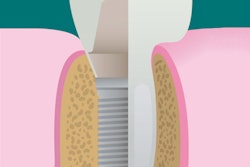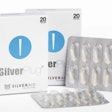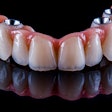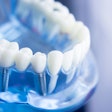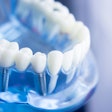Selective serotonin reuptake inhibitors (SSRIs), the most widely used drugs for the treatment of depression, reduce bone formation and increase the risk of bone fracture, according to a new study in the Journal of Dental Research (September 3, 2014).
Canadian researchers investigated the association between SSRIs and the risk of failures in osseointegrated implants, as osseointegration is influenced by bone metabolism. Their study was published by the International and American Associations for Dental Research (IADR/AADR).
The retrospective study included patients who received dental implants from January 2007 to January 2013. A total of 916 dental implants in 490 patients (94 implants on 51 patients using SSRIs) were used to estimate the risk of failure associated with the use of SSRIs. After follow-up ranging from three to 67 months, 38 dental implants failed and 784 succeeded in nonusers group, while 10 failed and 84 succeeded in the SSRIs users group.
The primary outcome was that SSRIs usage was associated with an increased risk of dental implants failure compared with nonusers of SSRIs (4.6% for nonusers and 10.6% for users). The secondary outcomes were that small implant diameters (≤ 4mm), bone augmentation, and smoking habits also seemed to be associated with higher risk of implant failure. The main limitation of this retrospective study was that drug compliance dose and treatment period could not be acquired from the files of the patients.






